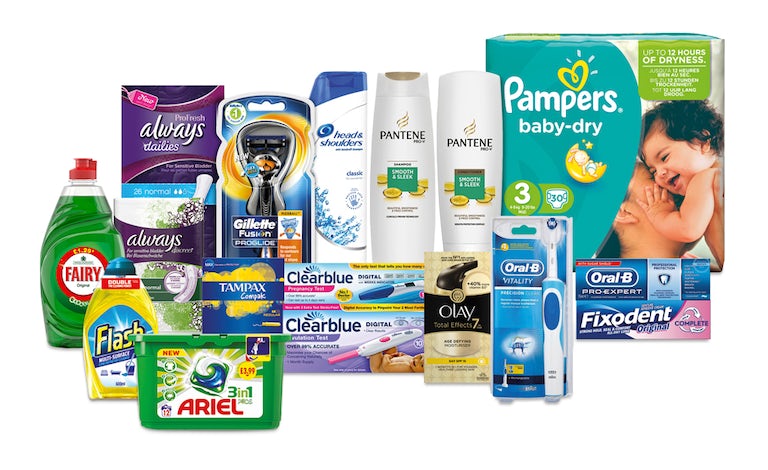By Michael Chibuzo
On December 7, 2023, the Nigerian media space was awash with news of the winding down of the on-ground presence of American multinational consumer goods firm, Procter & Gamble (P&G) in Nigeria. The Chief Financial Officer of P&G, Andre Schulten announced in New York that the company will be transitioning from manufacturing its products in Nigeria to importing its products into Nigeria.
P&G is the manufacturer of popular personal care and hygiene products such as Pampers diapers, Always sanitary pads, Oral B toothpaste, Ariel detergent, Safeguard deodorant/soap, Olay skincare, Ambi Pur air freshener and Gillette shaving products. At a point, the company dominated the market share for these products in Nigeria. As at 2023 the company has more than 107,000 employees across 180 countries.
Over the course of its existence, P&G has at various times sold off many of its brands in what it usually described as ‘streamlining of the company’ with the largest of such restructuring taking place in 2014 when P&G dropped around 100 brands and concentrating on 65 brands, which according to it, were producing 95% of the company’s profits.
In Nigeria, P&G started struggling with the coming of competitors into the Nigerian market that were challenging its market dominance in addition to high cost of production, which was affecting their ability to maintain profitability and quality at the same time. In fact as far back as February 2021, it was reported that P&G laid off around 120 workers in its largest Nigerian plant located at Agbara industrial estate in Ogun State around 2018.
As at 2021, only its plant in Ibadan was up and running and it was only producing Ariel detergent, which means that all other P&G products in Nigeria as at 2021 were either being imported or produced by third parties licensed by P&G. From around that period, the Nigerian market witnessed the influx of many brands producing similar fast moving consumer products as P&G.
P&G local competitors were selling to Nigerian consumers at cheaper rates and naturally, many Nigerian consumers reduced their patronage of P&G products, which were more expensive comparatively. For example, the baby diaper product, Pampers became more expensive than other diapers in the market. Customers switched to other brands such as Molfix, Soft Care, Dr. Brown, Oma etc.
The same thing goes for other of its products such as Aeriel detergents and Oral B toothpaste which are usually on the high side when compared to those of other brands in the market. With a large percentage of the consumers in Nigeria having a low income base and by extension purchasing power, they are more likely to patronise cheaper alternatives even if the quality is lower. What this means for P&G is low patronage and reduced profitability.
The question some may ask is, why does P&G feel reluctant to compete harder with its Nigerian competitors. Well, it is principally because the company needs to make a reasonable margin of profit in dollar terms that would be remitted to the parent company in the US for the business in Nigeria to be considered sustainable. To achieve that, the prices of their products need to considerably rise further considering the high Naira to dollar exchange rate. That is simply impossible in the present market realities.
So, that leaves P&G with the easier option of transitioning from a local manufacturer of these products to an importer of its own products into Nigeria. P&G for the simple reason that Nigeria is a humongous market for these fast moving consumer products are not about to EXIT Nigeria. It is therefore incorrect to say, “P&G exits Nigeria” because P&G is not exiting Nigeria. It is simply closing the last of its manufacturing plants in Nigeria located at Ibadan so as to become an importer.
So, the P&G situation is not like the gloomy picture many people painted. It is the kind of restructuring that is common in a capitalist economy where you are up against market forces. To be clear, it is not a thing of joy when a manufacturing firm closes shop for whatever reason however, it is mischievous for people to spin unnecessary narratives to these kind of business decisions.
The irony in the whole P&G affair is that many Nigerians who are expressing outrage over what they claim is P&G exit from Nigeria are indirectly responsible for the business decision P&G took. I am sure that many of them have not bought Gillette shaving products for the past couple of years, rather preferring cheaper substitutes in the market. Same thing applies for their diaper brand, Pampers and detergent, aerial.
In fact you can count how many ladies that still buy Always sanitary pad. The consumer behavior, supply chain dynamics and competition most times play even bigger roles in influencing these kinds of business model restructuring than the “harsh business environment” critics blame on the government.
Similar dynamics are equally playing out in the beverage industry with many new players entering the market to upset the market balance. We need to start acknowledging the fact that it is always a survival of the fittest contest.
Across the world, when businesses cannot compete favourably in any jurisdiction, they restrategise. This may include outright sale or shutdown. It does not necessarily make that country or jurisdiction hostile to businesses. P&G is transitioning, while its local competitors are staying put. That tells a competition story and not a story of state failure!

